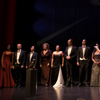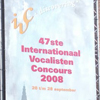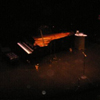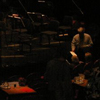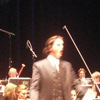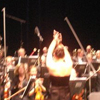Journal entries
Le Bon Journal
About
Search
Contact
Readers write
Show your support
Some statistics worth noting:
Most of the singers were 26 and 27 years of age, while 10 singers were under 24, and the oldest 33.
The voices ranged from 1 male soprano, 7 countertenors, and 3 basses to 78 sopranos.
This year’s candidates hailed from 34 countries, with Netherlands, USA, and Germany being the most represented.
65 candidates out of the initial 182 enrollments made it to the final two weeks of the competition.
The three accompanists (Hans Eijsackers, Trisdee na Patalung, and Andrew Wise) played 450 pieces during the two week competition.
There were over 40,000 euros of prizes, the largest being 12,000 euros by the City of Den Bosch.
Anne Ku writes about her travels, conversations, thoughts, events, music, and anything else that is interesting enough to fill a web page. She has written and produced two chamber operas, premiered in Utrecht, Netherlands. See her publication list for more.
Support the Bon Journal by keeping analyticalQ.com alive and free. Find out about Sponsorship or how else you can show your support
Bon Journal
47th International Vocal Competition in Den Bosch, Netherlands
15 - 28 September 2008 's-Hertogenbosch, the Netherlands
Designed to kick-start and boost young talent, the International Vocal Competition is only open to those singers born from 1st April 1975 onwards. Unlike the triennial Liszt Piano Competition, the other internationally famous competition in the country, candidates are allowed to choose solo pieces from any composer. Or rather, they are free to choose solo arias from the opera, lied or lieder (art song), operetta, and oratorio works of composers, dead and alive.
Situated midway between Utrecht and Eindhoven, the city of ‘s Hertogenbosch (which translates to “the Duke’s forest” or Den Bosch for short) has traditionally hosted these biennial events, since its commencement in 1954. Ironically, Den Bosch has no conservatory, the closest being in Tilburg and Utrecht (out of the 11 in the country).
As a member of the audience, I observed a general rule: if you are very good, then you can afford to sing a well-known piece. If not, you risk a poor reception. Such was the case when I heard Dido’s famous lament, “When I am laid in earth.” It had moved me to tears a few years ago when I first heard it after studying the step-wise descending bass line in an analysis class. However, at the eliminatory rounds, I was not moved by the Russian mezzo-soprano either because I had expected too much and was disappointed or that it sounded different from what I was used to.
For someone relatively new to opera and lied (or lieder), I was very impressed by the overall quality of the candidates. Not only did they sound professional, they looked every bit the divas they’d become, if not already. What a complicated task for the jury! Since there were two baritones in the afternoon session, I could at least show preference for one over the other. And through the process of elimination, I could mark off those that were imperfect, made errors, sang vibratos that bugged me, or struggled to reach the high notes. But how would I choose among the remainder?
On my first visit, I asked my 16-year old Dutch companion whether it was difficult to act AND sing at the same time. The young lady thought it would be easier to do so because acting helps the singing. “You can be more expressive,” she explained. She also pointed out that some singers seemed more at ease on stage than others. Indeed it was easy to spot those who appeared nervous, because they reminded me that they were candidates in a competition, whereas some singers had such presence that I felt I was watching a real performance, not a competition. Did this have any bearing at all?
During the break, I asked my companion if she could imagine herself ten years from now, singing on stage, with her family and friends in the audience. She replied a confident yes. If such competitions inspire and aspire young singers, why weren’t more of them there? It was a Sunday afternoon and the hall was only 60% full, with the young ones noticeably the candidates themselves. Where were other aspiring singers and wanna-be's?
Why are some soloists able to grab the hearts of everyone while others leave most people untouched? Then there are those whose nerves make the audience worry or feel uncomfortable. I could tell that some singers absolutely loved being on stage. I felt as though they were singing only to me. Establishing a rapport with the audience, together with stage presence, is surely an important factor in a successful performance. Eye contact is nearly impossible if you're sitting in the balcony.
Was the line-up of the candidates deliberate or random? The first accompanist played for a soprano followed by a mezzo soprano. The second accompanist first played for a baritone, two sopranos, and a mezzo soprano before the break. The order that afternoon was baritone, mezzo soprano, mezzo soprano, soprano, and soprano. I noticed that the seemingly random ordering of the voices might have coloured the way the singers were judged. After hearing soprano, my ears didn’t adjust well to mezzo soprano, but the other way around was fine. Is it similar to wine tasting, where you must start with the driest wine and work your way to the sweetest?
My companion on my second visit (the final day of the competition) was a young biologist who had earlier gone through rigorous voice training in Poland. She said that vocal competitions in her country kept the vocal ranges separate. Thus the bass singers would compete with other bass singers, and sopranos with other sopranos. “You don’t mix voices,” she said. So perhaps ordering did matter --- start from low to high and not the other way around, definitely not mixing sopranos with mezzos and altos.
Unlike the eliminatory rounds, the hall on the final day was very full, but still full of folks my age and a lot older. The well-dressed lady sitting next to me proudly proclaimed that she was 86 and had been a singer 60 years before. She went on to exclaim loudly after an American soprano had sung, “The music is wonderful, but I don’t like her voice.” The second part of her sentence resounded just as the applause died. Oops! Her enthusiasm returned when the 23-year old Korean baritone walked on stage. She told me she had already voted for him for the young person’s prize. [Han-Sung Yoo won six prizes, including the top prize.]
While waiting for the 19:15 Finale to begin, I listened to the members of the Brabant Orchestra tune up and warm up, getting ready for the final performance. As the hall filled, my friend and I eyed two seats in the second row behind the jury. It would be too late for anyone else to claim them if we got there just before the show were to begin. After abandoning our balcony seats, we had inadvertently followed others who also wanted to sit closer to the action. Pretty soon, every seat was taken. The TV cameras rolled into place. The announcer greeted everyone in Dutch and English, seamlessly and effortlessly. It was the beginning of a concert I would remember for years to come.
When the first soloist walked on stage, after the initial Verdi overture, I suddenly remembered another friend, also a soprano, who would have loved to join me. She had stopped singing when her neighbours complained but burst into song when I accompanied her in her country house. How many other friends would have enjoyed this evening with me? Too many to mention.

